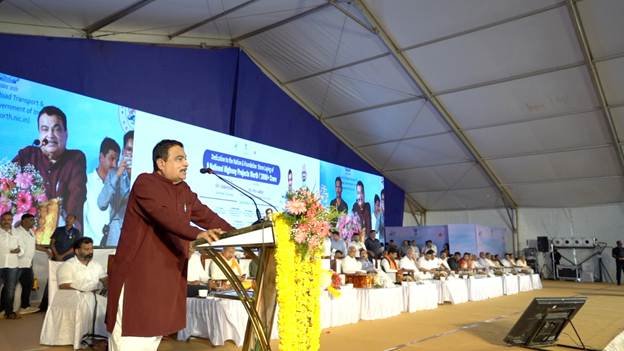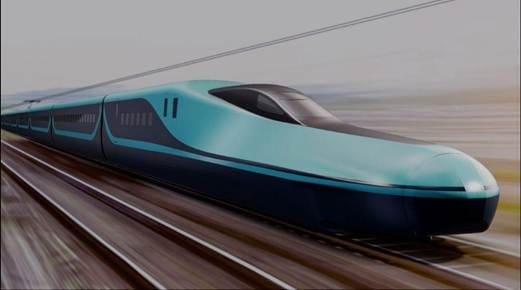Ganga Cleaning: mission (im)possible!

Denmark has offered support to the development of a model Urban River Management Plan for a comprehensive interrelation of river and city and connecting people with the city at the Ganga Cleaning summit concluded 7 Dec 2018 in New Delhi.
Top officials looked at various financial tools including Rupee-denominated Masala bonds for a national project, one of the world’s biggest river projects facing escalating costs, observers at the summit said.
Sixteen leading companies from eight nations were part of a workshop which covered artificial intelligence, Internet of things, machine learning to latest advancements in waste water recycling, reuse and material recovery.
The workshop also covered waste-to-energy, satellite imagery with very high resolution, sustainable agricultural practices using soil-less membrane farming, run of the river hydropower units and overall areas of technologies supporting circular economy.
The technologies are novel and noble with lower land and energy foot-print, robust but simple electromechanical systems, optimal operations and maintenance costs with low carbon footprint, said the Ministry of Water Resources, River Development and Ganga Rejuvenation in a release on concluding the summit.
A range of innovative technology and financial innovations will drive the massive Ganga cleaning program as was deliberated by experts in various fields from 16 countries during the India Water Impact Summit, it said.
The summit was organised by National Mission for Clean Ganga (NMCG).
The Government is inviting technology solution providers to apply for the Environment Technology Verification (ETV) programme in the areas of decentralised waste water and industrial effluent treatment, data and information and ancillary services such as solid waste management, sustainable agriculture and hydropower.
NMCG has streamlined the introduction and acceleration of technology deployment through an ETV process that allows companies to showcase the success and efficacy of their solutions through a pilot demonstration project.
Afforestation, biodiversity, urban river management, data harmonisation, development of water bodies, water valuation and market development, financing in water sector and innovation in sewage and sewerage management were the key topics discussed over the three-day summit.
Ministers from the states and senior bureaucrats at the summit discussed the various challenges that they face at the ground level implementation of the program.
The suggestions from the experts were: engaging state/urban local bodies in policy planning, incorporating local/traditional knowledge in implementation, encouraging zero liquid discharge, decentralization and community driven treatment of sewage & effluents.
The Summit introduced the Ganga Finance Forum, which brought together a number of national and international financial sector experts highlighted the gaps but equally provided a plethora of innovative financial instruments to support the Ganga Rejuvenation programme.
Masala Bonds
These include issuing of masala bonds in international markets to tap into long-term debt financing through capital markets, using specialist guarantee and credit enhancement instruments, specialist foreign exchange hedging products for those using external commercial borrowing structures.
The group unilaterally agreed to create blended finance products such as social impact bonds. An interesting solution to use blockchain and tokens to raise capital has also been suggested by select companies specialising in the fintech sector.
Data and Information asymmetry has been long identified as the crucial missing link.
The Summit enabled NMCG to take a leap forward in initiating a number of initiatives in data harmonisation that will develop platforms and approaches to increase interoperability of data being generated by a network of agencies working in the water sector.
NMCG invited big data and analytics companies and entrepreneurs to partner with it to develop next generation data solutions that will help policy makers and investors in equal measure with irrefutable and accurate data.
The Summit yet again highlighted the need to value water. It prompted subject matter experts to think of the development of local area water markets so that true economic value of water can be established that will lead to better pricing strategies.
The India Water Impact Summit is an annual event to provide a platform to start a discourse towards understanding water as a natural resource. The efforts may take various forms: data collection, hydrology, e-flows, agriculture, waste water and more.
The Centre for Ganga River Basin Management and Studies is a think-tank and Centre of Excellence to the National Mission for Clean Ganga.
In 2015 a consortium of seven Indian Institutes of Technology (Kanpur, Delhi, Madras, Bombay, Kharagpur, Guwahati and Roorkee) created the Ganga River Basin Management Plan.
The objective of the plan was to take comprehensive measures for the restoration of the wholesomeness of the Ganga ecosystem and improvement of its ecological health, with due regard to the issue of competing water uses in the river basin. fiinews.com









